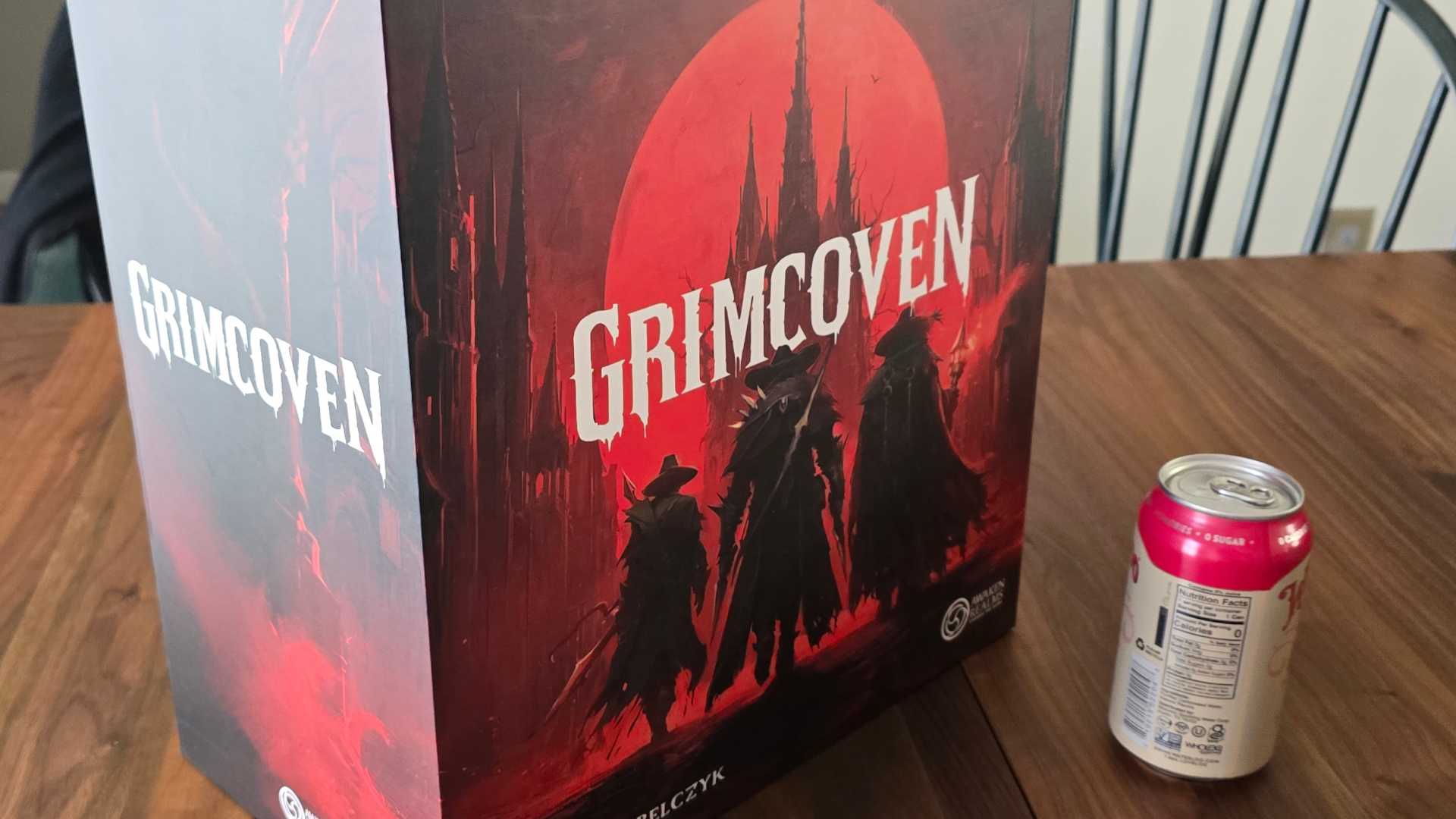Dispatch's success shows a way forward for a struggling AA narrative genre
Opinion | Dispatch is an adventure game that ditches age-old "adventure" gameplay – and it shows how similar titles could re-find their purpose
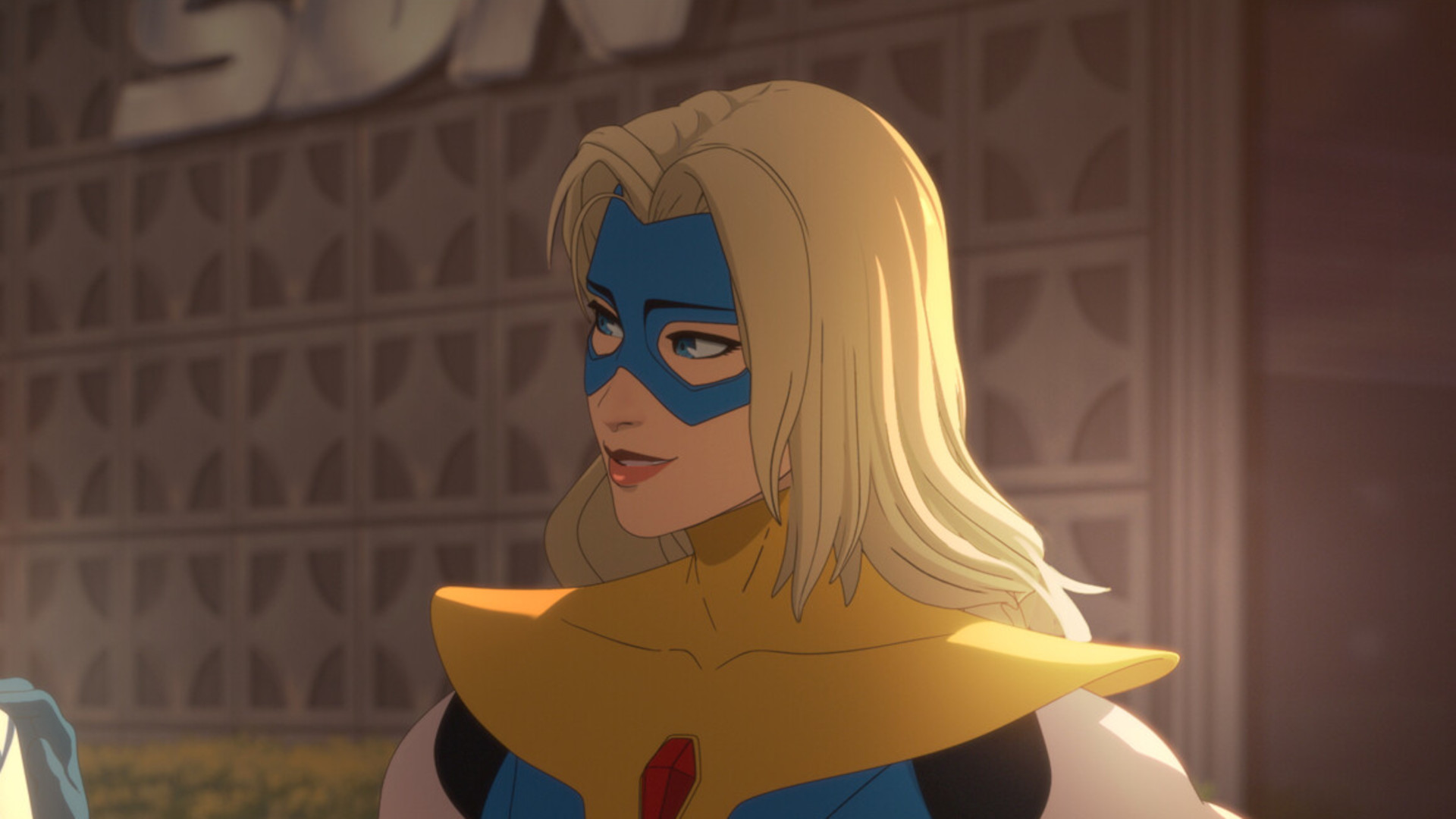
Weekly digests, tales from the communities you love, and more
You are now subscribed
Your newsletter sign-up was successful
Want to add more newsletters?

Every Friday
GamesRadar+
Your weekly update on everything you could ever want to know about the games you already love, games we know you're going to love in the near future, and tales from the communities that surround them.

Every Thursday
GTA 6 O'clock
Our special GTA 6 newsletter, with breaking news, insider info, and rumor analysis from the award-winning GTA 6 O'clock experts.

Every Friday
Knowledge
From the creators of Edge: A weekly videogame industry newsletter with analysis from expert writers, guidance from professionals, and insight into what's on the horizon.

Every Thursday
The Setup
Hardware nerds unite, sign up to our free tech newsletter for a weekly digest of the hottest new tech, the latest gadgets on the test bench, and much more.

Every Wednesday
Switch 2 Spotlight
Sign up to our new Switch 2 newsletter, where we bring you the latest talking points on Nintendo's new console each week, bring you up to date on the news, and recommend what games to play.

Every Saturday
The Watchlist
Subscribe for a weekly digest of the movie and TV news that matters, direct to your inbox. From first-look trailers, interviews, reviews and explainers, we've got you covered.

Once a month
SFX
Get sneak previews, exclusive competitions and details of special events each month!
The verdict's in: Dispatch is a bona-fide hit. Robert Robertson and the Z-Team's unlikely exploits have already topped 2 million sales, and it's set to beat AdHoc Studio's most optimistic sales target in just three short months. One of the year's breakout successes, it's particularly notable for breaking the struggling AA narrative genre's unfortunate losing streak.
In its heyday, AA narrative's heartfelt, choice-driven titles sold big numbers. Life is Strange reached 20 million players and Telltale's Walking Dead series reportedly earned over $1 billion in revenue. This decade, the genre's proving more likely to produce costly misfires. Life is Strange: Double Exposure made a sizable loss for Square Enix in 2024, and Lost Records: Bloom & Rage's underperformance pushed Don't Nod to pivot to Netflix IP adaptations.
These are all signs of a dying genre that needs to evolve if it wants to survive. There was a time when AA narrative titles set the standard for cinematic, branching character-driven storytelling. Now it's in the squeezed middle of the games industry: too cheap to rival increasingly ambitious AA releases, yet too tastefully stuck in its ways to fend off daring indie rivals like Citizen Sleeper, 1000xRESIST and Inscryption who are beating them on a fraction of the budget.
Super powered
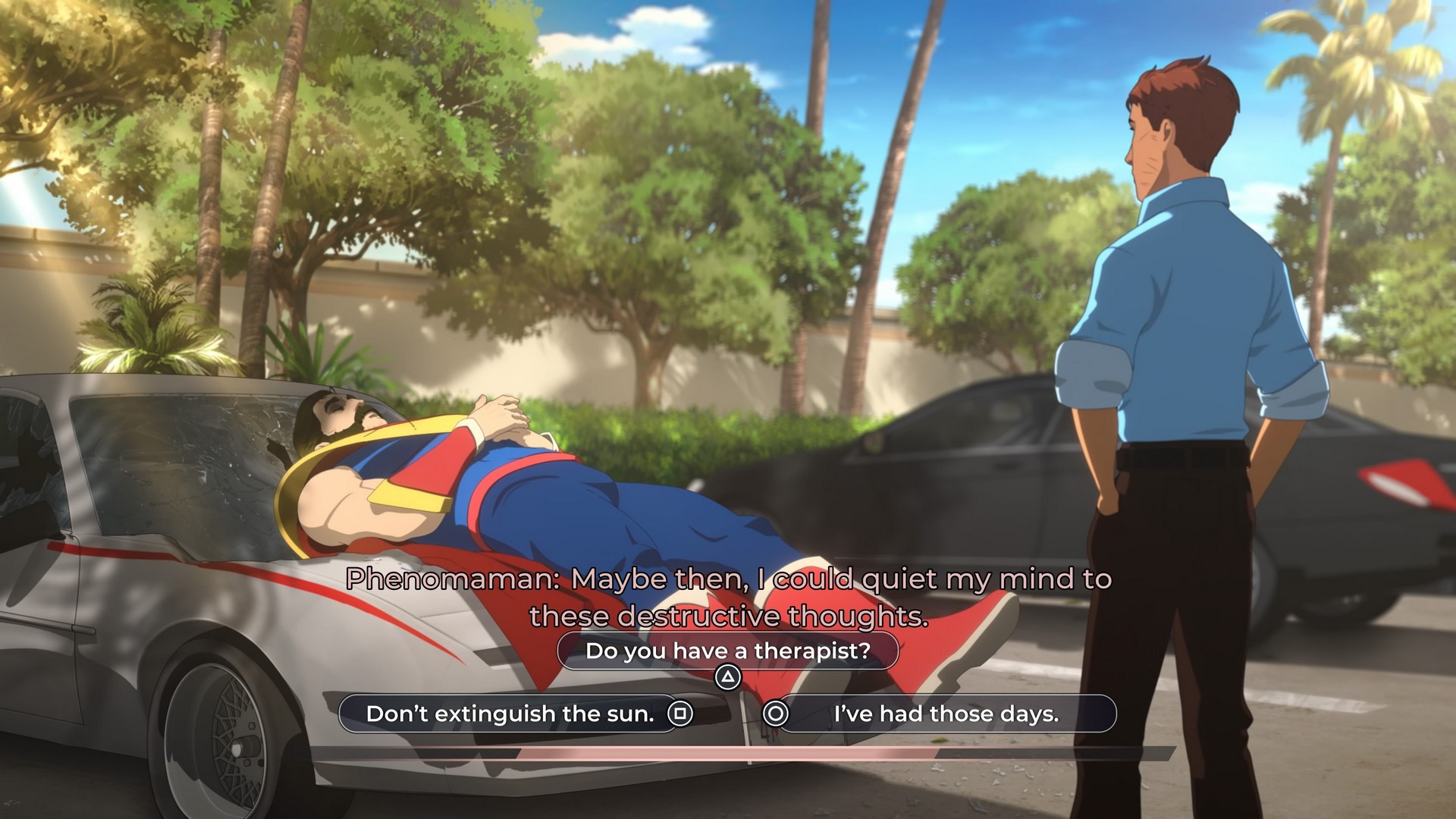
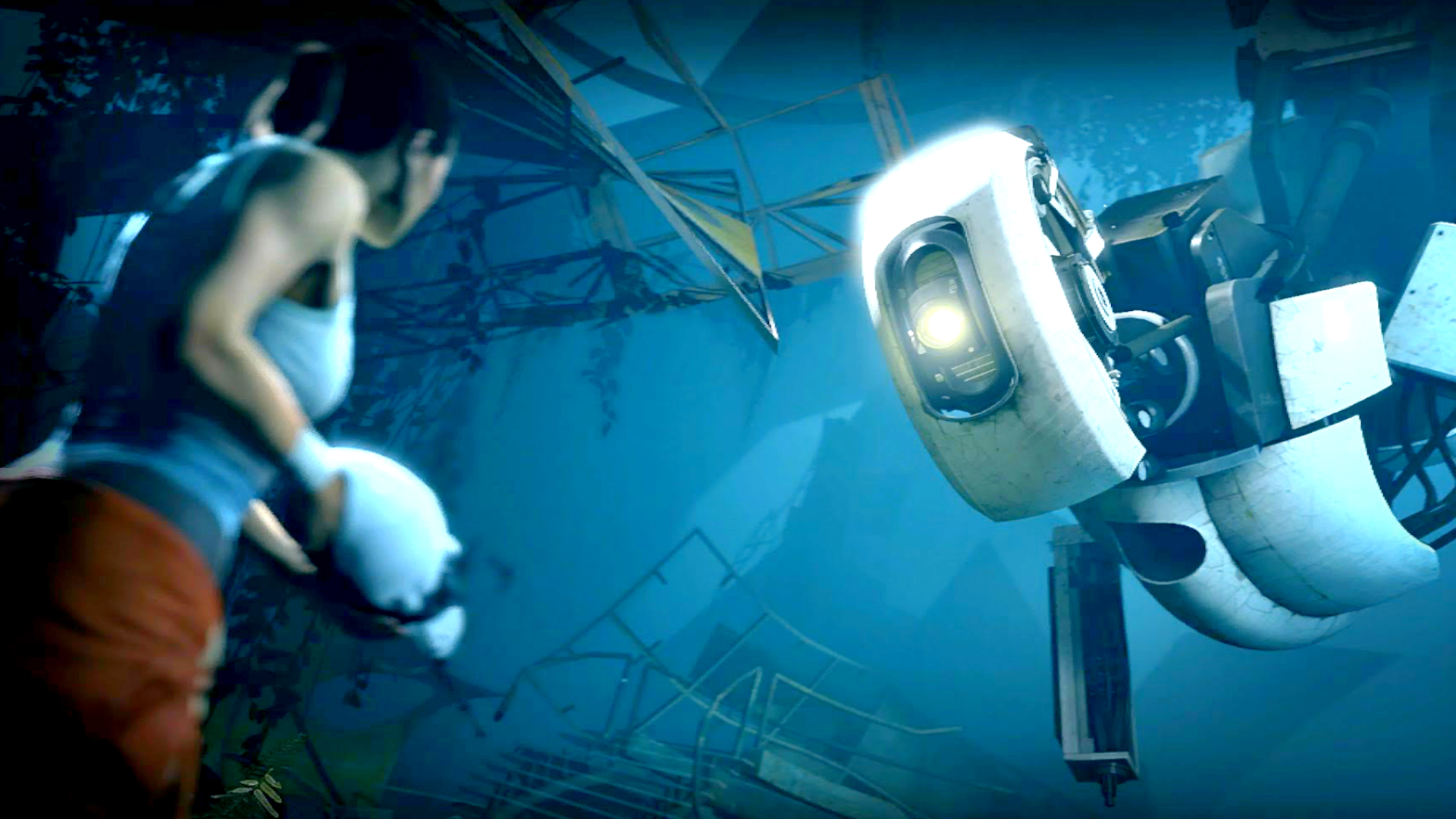
We've rated the best video game stories ever - how many have you played?
Dispatch shows how to put budgets to good use. But its focus on cutting edge animation, big-name performers and light management sim elements comes at a cost: ditching the adventure game environment exploration that was once the hallmark of Telltale and LucasArts.
It won't ask you to rummage through bins for discarded notes, raid drawers for bandages and mislaid keys, or berate a bystander into giving up their deepest secrets. I can't say I miss it, but what does it mean for Dispatch to remove the "adventure" aspect from a genre that owes its existence to the venerable adventure game?
The benefits of this approach are clear and obvious. Dispatch's pacing is immaculate, every needledrop moment lands perfectly without enforced interstitial sections to leisurely explore a confined environment to solve puzzles that present only the lightest of challenges.
Scenes are shot and staged with artful panache as they don't have to consider players moving across 3D environments. Forget Metal Gear Solid 4, this is the game that's truly been made almost entirely from cutscenes with the same fastidious care as a Pixar movie. Character art and animation finally dispenses with the clunky animation that became Telltale's unfortunate calling card. Now its visuals bear comparison with prominent animations like Invincible, and blows away the majority of the field.
Weekly digests, tales from the communities you love, and more
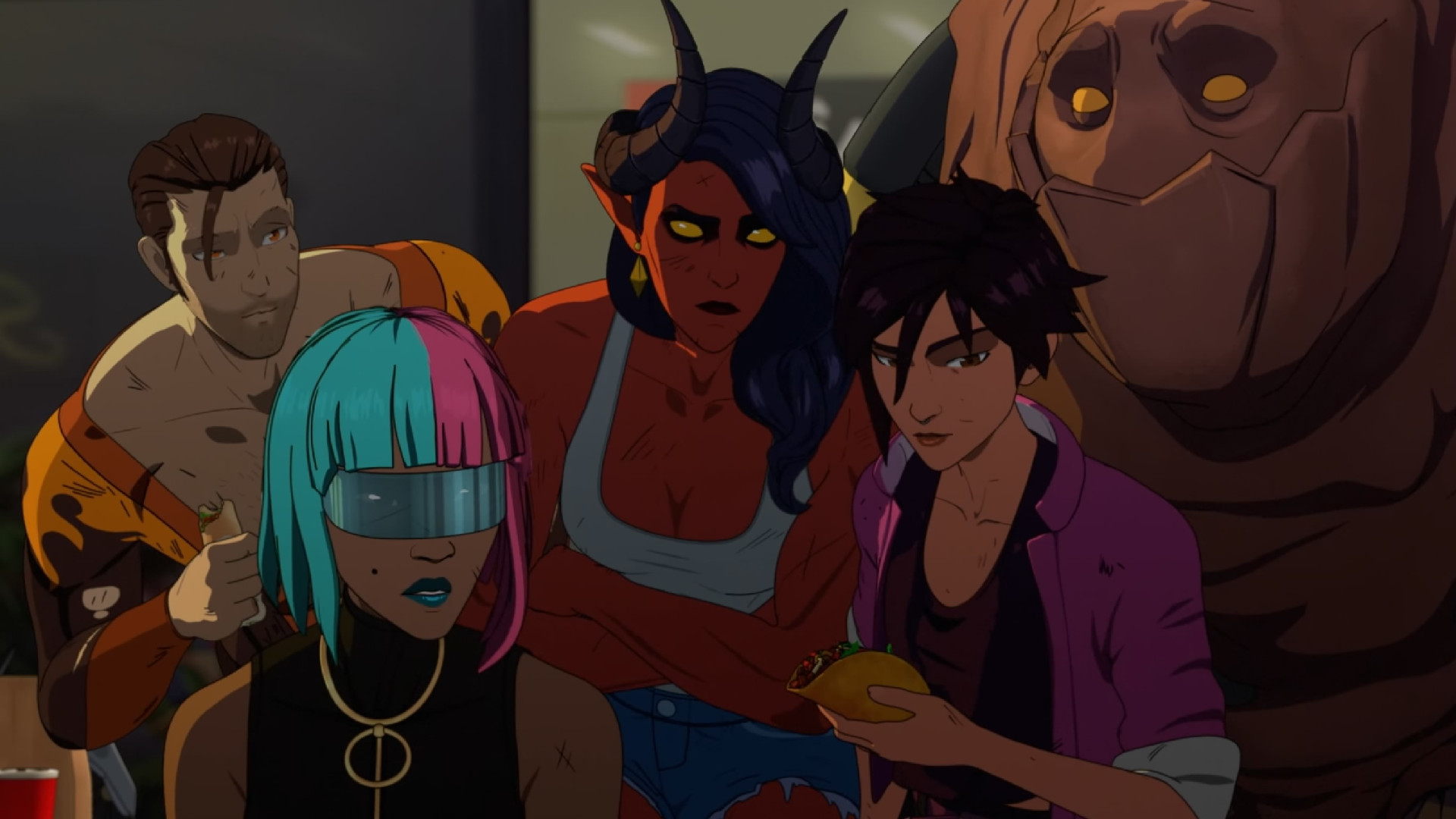
I doubt Dispatch was cheap, but doing away with the very concept of level design was a sharp decision that allows for that coordinated effort towards impeccable visual presentation, while freeing up money for whip-sharp performances from big names including Aaron Paul, Jeffrey Wright, and Laura Bailey.
For all the many positives that come with that decision, the removal of adventure game exploration and puzzle-solving means removing a large chunk of Dispatch's interactivity, otherwise limited to selecting branching dialogue and passing QTEs. AdHoc's solution to this is the dispatching sections, where, as an office-bound supe without powers, your role is assigning the Z-team to content with various emergencies – whether that's asking humanoid-bat hybrid Sonar to defuse a riot with sheer charm or sending miniature mustachioed strongman Punch Up to break it up by force.

It reminds me of Vanillaware's 13 Sentinels: Aegis Rim (and not just for its cyberpunky city grid outline), whose mecha tower defence RTS sections form an unexpectedly in-depth mode where you build your own earth defence force to prevent a kaiju invasion. As with Dispatch's dispatching, it's a lightly interactive venue for developing character relationships under pressure that doubles up as a reprieve from denser narrative sections. And they sure get dense in 13 Sentinel's flabbergastingly complex time-travelling storyline.
Both Dispatch and 13 Sentinels have drawn criticism for the arguably perfunctory nature of these modes, but they're so finely interwoven into the narrative that I couldn't imagine the games in their absence. Their function in their respective game's pace is irreplaceable, and far preferable to stodgy traditional adventure gameplay (which 13 Sentinels features plenty of elsewhere). These tailor-made features beat having exploration sections added out of sheer genre expectation any day.
The adventure game has died once already in the 2000s, so the death of its particular brand of exploration (which we still routinely see in other genres like survival horror) would merely be a case of gaming history repeating itself yet again. Telltale's own efforts started as a conscious disarmament in a war waged between puzzle designers and players, dropping devious puzzles to instead focus on narrative, character, and – from The Walking Dead onwards – branching decisions.
Going places
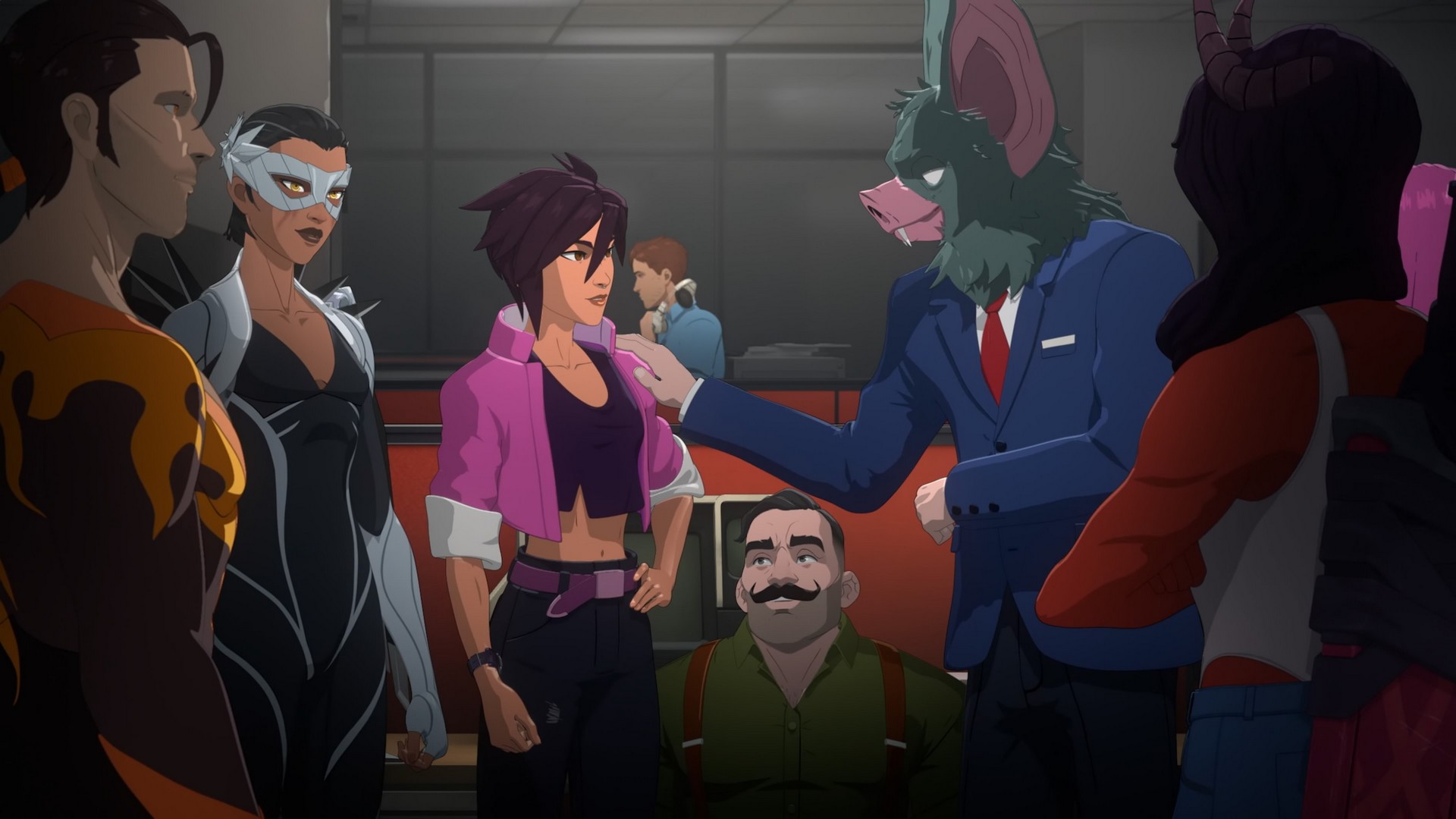
But what we might now call the "post-adventure game" often retained the same shape and structure as its forebears, just with longer cinematic cutscenes, better animation, a butterfly-effect narrative approach and a kinder attitude to its escape room puzzles. By now, those old hoary habits might have outlived their usefulness.
If the time of The Walking Dead and Life is Strange has now passed, I'd like Dispatch to herald a wave of "post-post adventure games" (or a far better name than I can give it). By that, I don't mean I want the next Don't Nod or Life is Strange games to learn the exact same lessons from its televisual episodic model, cast of charismatic celebs, or exact blend of glossy animation and micromanagement strategy. I can live without Dispatch's tolerable-at-best hacking mini-game, and its restrained take on branching narrative can surely be improved upon.
Instead, what I'd hope to see replicated is its willingness to discard once-sacred genre assumptions, resulting in games that find a narrower space where they can excel. Directed by Telltale's former cinematic artist Nick Herman, the highly cinematic Dispatch identified a team's strengths and deployed a not-inconsiderable budget to knock it out of the park with a unique offering.
The 2010-era post-adventure game may be dying, but Dispatch shows us a way AA narrative games can finally regain their rightful place: by doing what AAA won't dare to do.
Dispatch review: "Critical Role fans rejoice – episodic gaming has been superheroically saved by this incredibly charming band of misfits"

Francisco is a freelance journalist, whose work has been published at IGN, Epic Games, Polygon, PC Gamer and many others. When he's not delighting in unexpected indie games or sorting through an increasingly overwhelming Magic: the Gathering collection, he's often found in the closest cinema.
You must confirm your public display name before commenting
Please logout and then login again, you will then be prompted to enter your display name.
